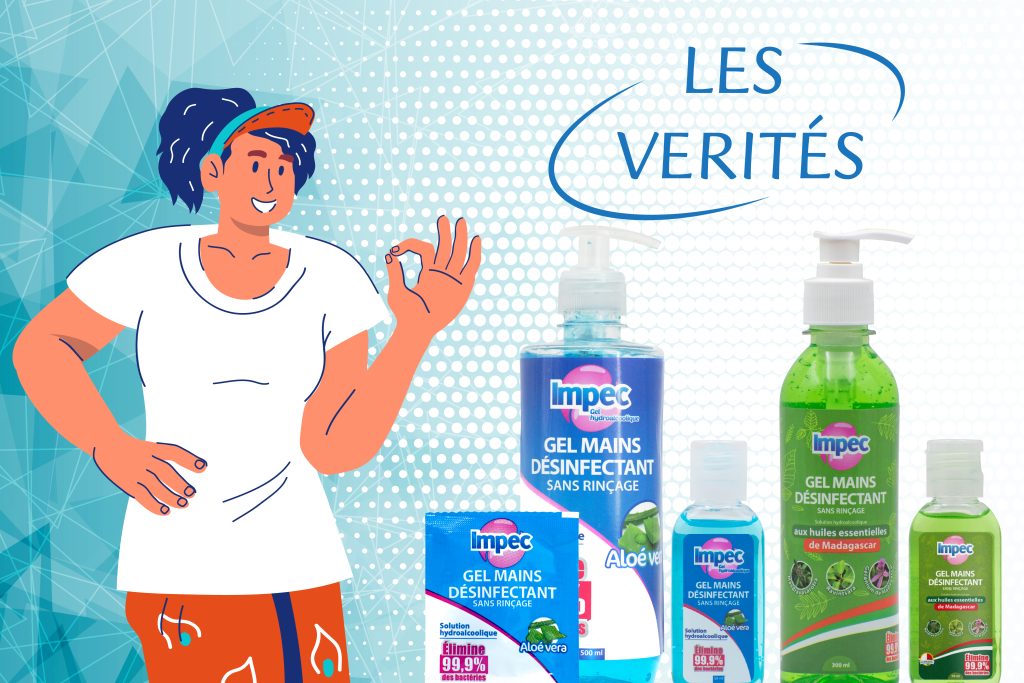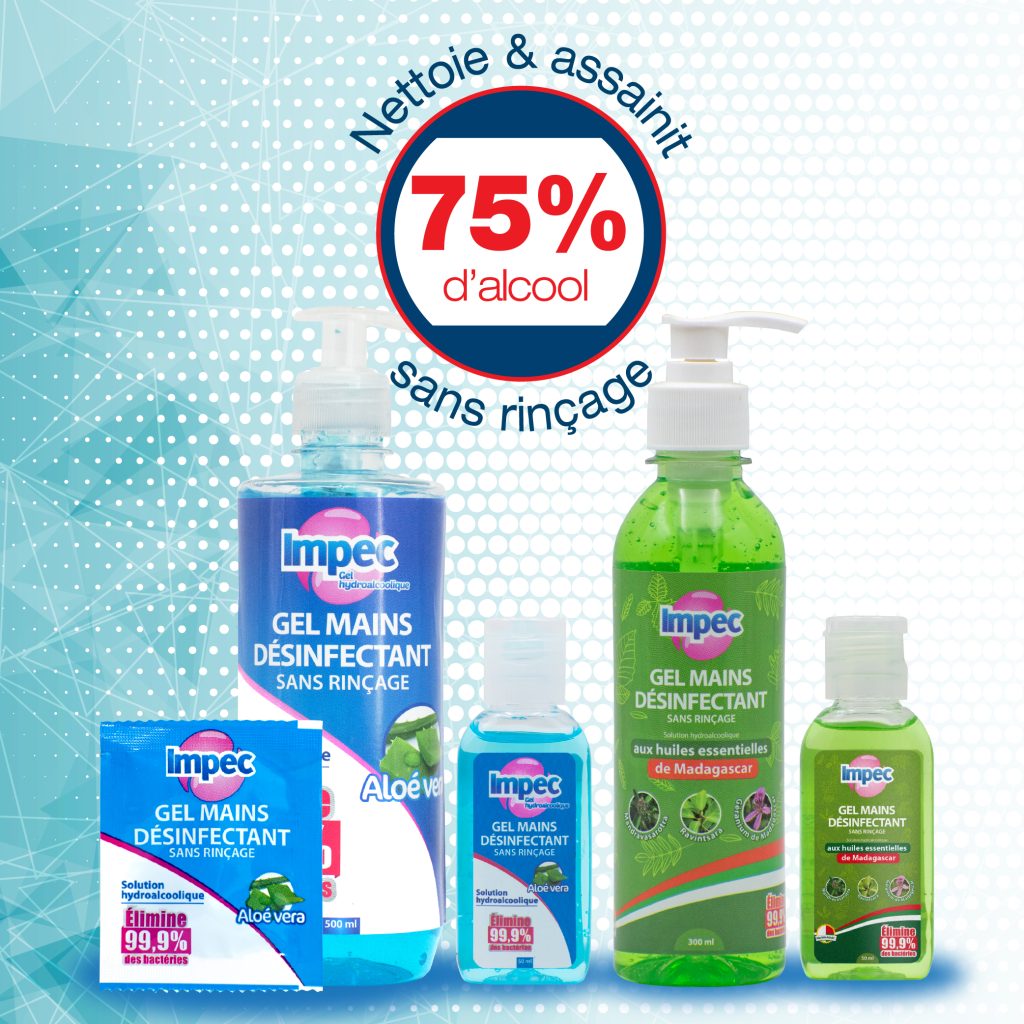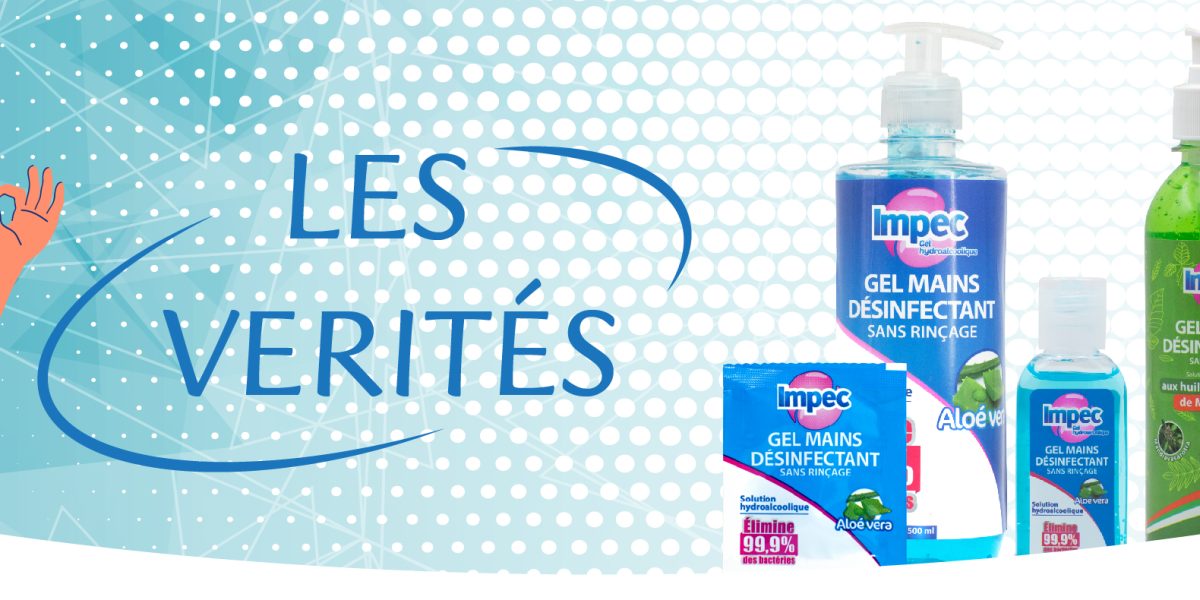Wearing a mask, distancing ourselves physically and washing our hands regularly are gestures that we have adopted on a daily basis since the outbreak of the coronavirus epidemic. Barrier measures have become vital to protect ourselves and our loved ones from contamination.
The use of hydroalcoholic gel, in particular, is a habit. And yet, preconceived ideas about the effects of this product still persist.
Find out what’s true and what’s false about hydroalcoholic gel, and let’s sort out what’s real and what’s not.

Myth no.1: Hydro-alcoholic gel is more effective on wet hands
This information is false, even if some of us are in the habit of rubbing our hands with hydroalcoholic gel without first drying them. In fact, humidity dilutes the product’s components, particularly the alcohol it contains, which is particularly effective against viruses. As soon as the alcohol level drops, the gel loses all its efficiency, especially as some gels containing hydrogen peroxide can cause skin irritation on contact with water.
So, to use your hydroalcoholic gel effectively to disinfect your hands, you must first dry them thoroughly.
Myth no.2: Regular use of hydroalcoholic gel damages hands
Hydroalcoholic gel is an excellent product for removing all traces of viruses from hands, but it’s also true that it damages hands. This information is therefore true. This is mainly due to the presence of alcohol in the product, which tends to strip the skin with intensive use.
What’s more, it can also reduce the flora present on the epidermis, which normally protects it from external aggression.
Even if this information is true, there’s no need to worry. The ethanol contained in this disinfectant product is non-toxic to the skin, and thanks to the emollients that manufacturers add to the formula, the skin is protected from irritation.
All you need to do is choose a hydroalcoholic gel that contains softening and moisturizing agents like vegetable glycerine, for example, which reduces skin irritation. This is the case with Impec hydroalcoholic gel, for example, which has been available in all stores since 2017.
Do not to apply the gel to irritated skin.

Myth no. 3: Hydro-alcoholic gel doesn’t expired
Although hydroalcoholic gel is a hygiene product, it has an expiration date. It is important to refer to the indication on the bottle for this information. If it is not indicated, you should know that the solution is valid for an average of 3 months after opening, as it is no longer sterile.
To keep the product in good condition, we recommend closing the bottle tightly after each use. This prevents evaporation of the alcohol and other volatile compounds in the hydroalcoholic gel.
Myth no. 4: Hydro-alcoholic gel cleans everything
Hydroalcoholic gel is not a cleaning product, and certainly not a multi-purpose cleaner. In fact, it’s a solution with disinfectant properties, which means it’s effective against bacteria, viruses and fungi. That’s why you need to use it on clean hands, i.e. hands that have been washed with water to remove dirt such as dust and grime.
Hydroalcoholic gel is a product used in addition to soap and water to eliminate viruses that may have remained on the skin and been transmitted by contact. Take care to use it only for this purpose.
Other solutions are also available, such as hydroalcoholic wipes or Impec multi-surface disinfectant spray for disinfecting surfaces.
Myth no.5: Daily use of hydroalcoholic gel may be harmful to your health in the future
This product is to be used only as indicated, i.e. for hand disinfection. It must not be swallowed or inhaled.
Apart from the case of hydroalcoholic gel ingestion, the product is not toxic to humans. Ethanol is a very low-toxicity molecule, and studies show that daily use poses no carcinogenic, reprotoxic or neurotoxic risk through the skin.
In other words, there is little risk of contracting illnesses in the future as a result of daily use of hydroalcoholic gel.





